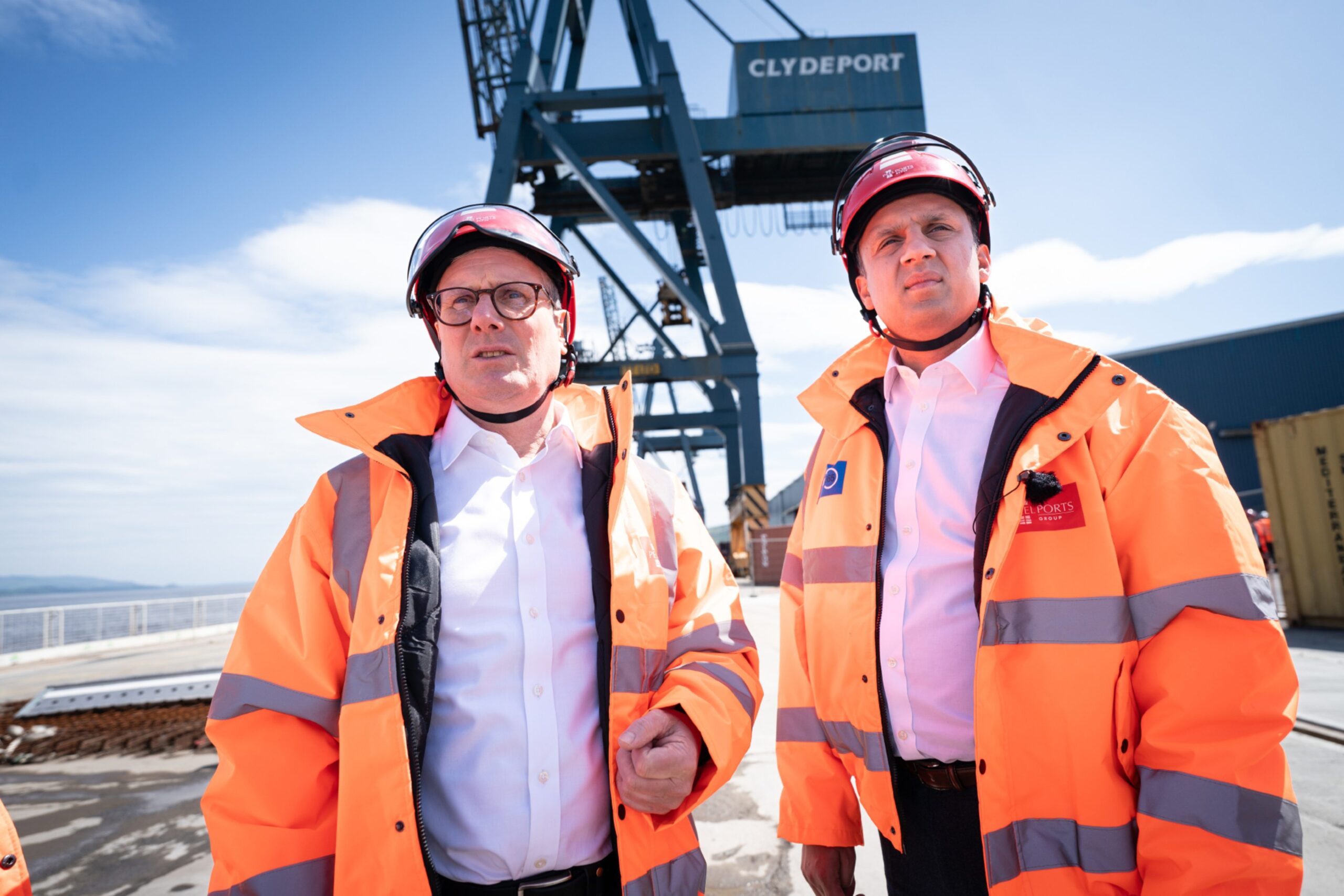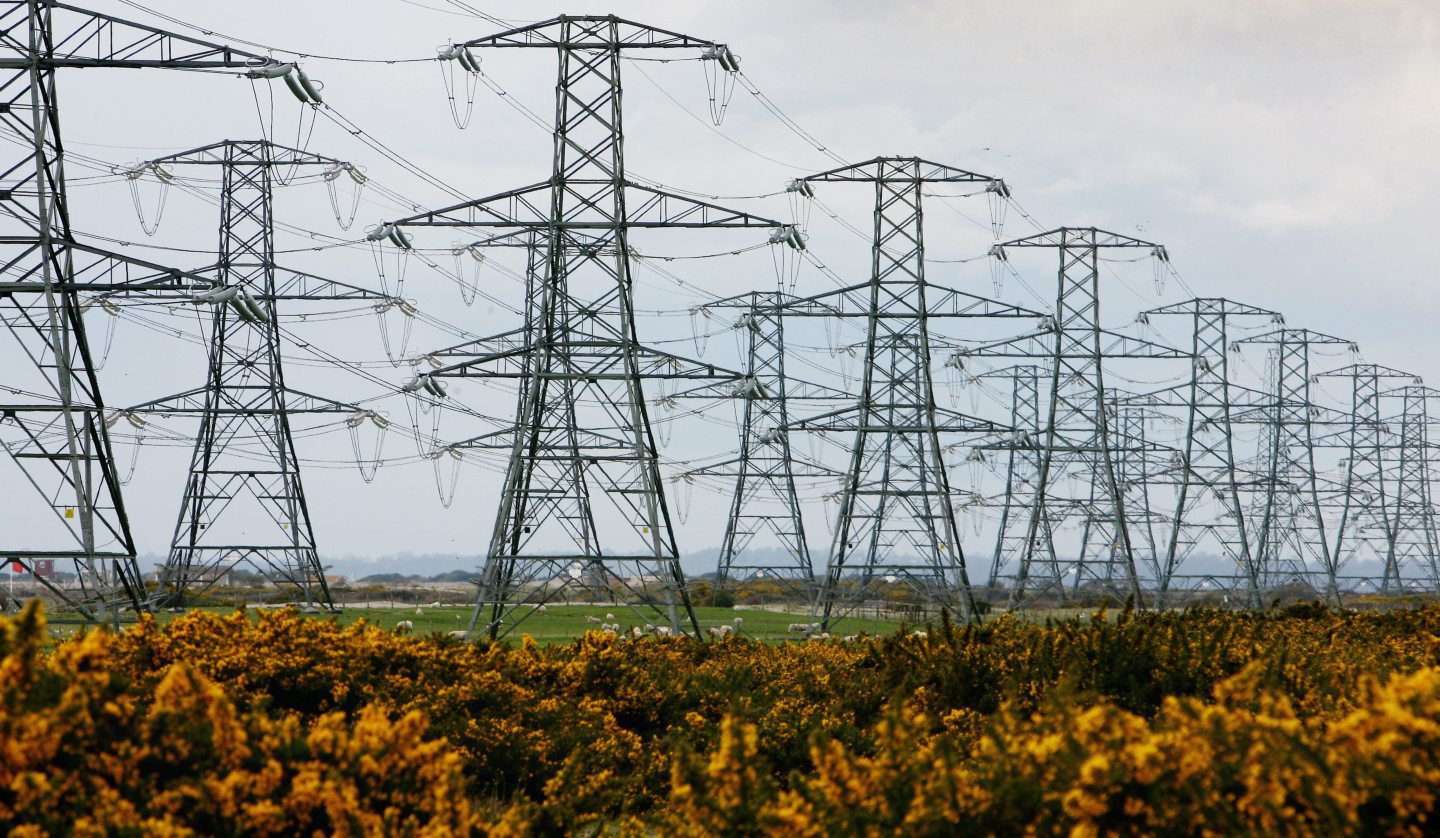Labour promised to “take the brakes off Britain” as it unveiled its energy policy priorities in the King’s Speech today.
King Charles outlined the government’s commitment to a “clean energy transition which will lower energy bills for consumers over time”.
The King confirmed a bill will be introduced to set up Great British Energy (GB Energy), a “publicly owned clean power company headquartered in Scotland”.
GB Energy will “help accelerate investment in renewable energy such as offshore wind”, with Labour previously announcing plans for an initial £8.3bn investment.
The King, a longstanding advocate for environmental issues, said: “My government recognises the urgency of the global climate challenge and the new job opportunities that can come from leading the development of the technologies of the future.”
Other energy measures outlined in the speech included legislation to “help the country achieve energy independence and unlock investment in energy infrastructure”, and a bill to to support “sustainable aviation fuel (SAF) production”.
Shortly after taking office, Prime Minister Sir Keir Starmer discussed the future of Scotland’s Grangemouth oil refinery with First Minister John Swinney.
Sir Keir said protecting jobs at Grangemouth is a “real priority” for Labour, and the refinery’s owner Petroineos has previously said it is exploring the possibility of SAF and biodiesel production at the site.
The prominent mention of SAF production in the King’s Speech could be an indication of Labour’s plans to secure the hundreds of jobs which could be at risk amid plans to shut the refinery as early as 2025.
GB Energy reaction
The confirmation of GB Energy received a warm reception among Aberdeen business leaders, amid a campaign to base the publicly-owned firm in the Granite City.
Aberdeen Grampian Chamber of Commerce (AGCC) chief executive Russell Borthwick welcomed the release of further detail on the proposed Energy Independence Bill.
“The scale of the ambition set out today is hugely exciting, and the intention to develop, operate and own assets alongside the private sector is going to help unlock the investment we need to become a global clean energy superpower,” Borthwick said.
“Encouragingly, the bill also refers to supporting the further reduction of emissions from our oil and gas sector, rather than seeking to accelerate its decline.
“This is important but must now be matched with a fiscal regime which supports continuing investment and production from the North Sea for as long as we need it.”
During the King’s Speech, AGCC deployed an advertising van to drive home its message that GB Energy should be located in “the home of the UK’s energy sector”.
“To achieve the ambition set-out today, this new state-owned company must be co-created with the energy sector– and that industry is largely based here in the North-east of Scotland,” Borthwick said.
“If we can only bring one thing home this summer, let it be Great British Energy…to Aberdeen.”
GB Energy details still unclear
While AGCC welcomed the inclusion of GB Energy in the King’s Speech, the North Sea oil and gas sector remains “deeply concerned” about some of Labour’s proposals.
The King’s Speech also did not include any detail on where in Scotland GB Energy will be located.
While business leaders in Aberdeen and Inverness are campaigning for their respective cities, the appointment of Rutherglen MP Michael Shanks to Labour’s energy frontbench could see Glasgow emerge as the frontrunner.
Chancellor of the Duchy of Lancaster Pat McFadden told the BBC that further details about GB Energy would be confirmed in due course, with the government yet to make a decision on its headquarters.
Energy industry reaction
But the inclusion of GB Energy in the King’s Speech was welcomed by UK energy infrastructure trade association BEAMA.
BEAMA chief executive officer Yselkla Farmer called the establishment of GB Energy a “landmark decision” and said the new government is “hitting the ground running”.
“But we cannot scale up overnight,” Farmer said.
“Whilst commitments have been made today, immediate action is required to mobilise public and private sector funding for the UK’s low carbon infrastructure and supply chain.
“The longer we delay, the more expensive it will become, leaving consumers with higher energy bills and greater vulnerability to volatile wholesale energy shocks.”
Renewable energy
Meanwhile, the UK renewable industry welcomed “measures that will accelerate energy security and affordability”.
RenewableUK executive director of policy Ana Musat said the announcement of a Planning and Infrastructure Bill will “ensure that essential infrastructure can be deployed without delay”.
“Setting up Great British Energy to mobilise investment into renewables and support engagement with local communities will also play an important role in helping us meet our deployment targets,” Musat said.
“Ensuring this institution works well alongside the National Wealth Fund and other financial institutions will be essential to enable the private sector to mobilise the finance required to deliver the energy transition: in offshore wind alone, £100bn of private investment will be needed to deliver Labour’s target of 60 gigawatts by 2030.
“We look forward to working with the government to ensure the mandate of GB Energy accelerates deployment of key technologies, including onshore wind, floating offshore wind and long-duration energy storage, guided by an industrial strategy and a strong partnership between business and government.”
EnBW Generation UK managing director Damien Zachlod said the proposed planning reforms will update a system that is “no longer fit for purpose”.
“Uncertainty around when and how major projects will be able to connect to the national grid is a significant factor holding back the growth of the offshore wind industry and the UK’s ability to meet its net zero targets,” Zachlod said.
“By cutting through red tape and speeding up the process of getting planning approval, this bill will help boost offshore wind projects and continue Britain’s legacy as an offshore wind superpower.”
Grangemouth future
Meanwhile, the Unite union welcomed the role SAF production could play in the future of Grangemouth.
Unite Scottish secretary Derek Thomson said the union supports all government efforts to protect and establish jobs at the refinery.
The UK and Scottish governments are reportedly committing £1.6m in funding towards Project Willow which will explore potential low-carbon options at Grangemouth.
“The primary objective for Unite remains absolute. There must be an extension in the lifespan of the oil refinery while there is an acceleration in viable low carbon projects being delivered at the complex,” Thompson said.
“There are a number of opportunities including sustainable aviation fuel which could have a bright future with government support.”
Thompson said the UK “cannot allow oil and gas workers to become the coal miners of our generation”.
“Grangemouth is one of the greatest tests the transition process will ever face in Scotland,” he said.
“We need to get this right for the 500 workers based at the refinery and thousands more dependent upon it in the wider supply chain.”
Recommended for you




 © Henry Nicholls/PA Wire
© Henry Nicholls/PA Wire © Wullie Marr/ DCT
© Wullie Marr/ DCT © Stefan Rousseau/PA Wire
© Stefan Rousseau/PA Wire © PA
© PA © Supplied by Flotation Energy
© Supplied by Flotation Energy © PA
© PA






